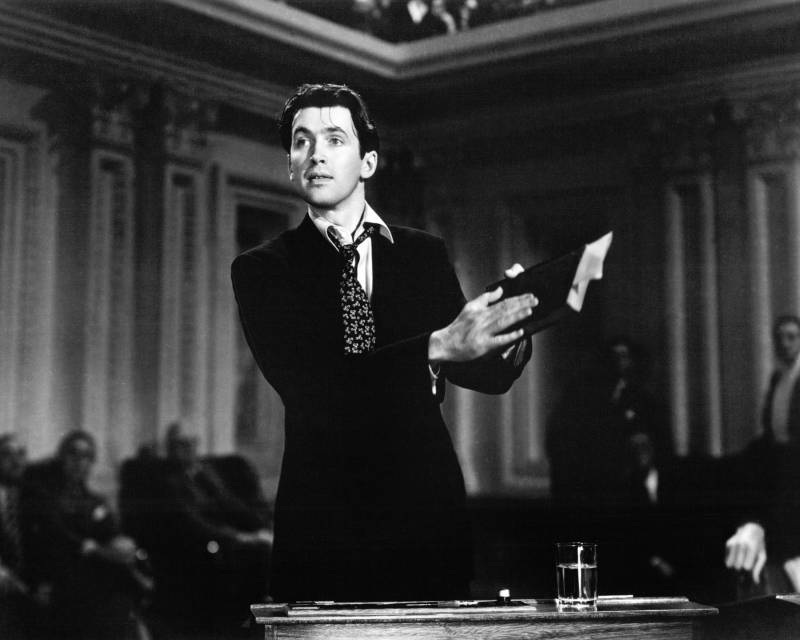“I guess this is just another lost cause,” he says to his onetime mentor, Sen. Payne. Then he turns to the other senators. “All you people don’t know about lost causes,” he laments. “Mr. Payne does. He said once they were the only causes worth fighting for. And he fought for them once, for the only reason any man ever fights for them. Because of just one plain simple rule: Love Thy Neighbor.”
I remember learning in my seventh grade civics class about how Congress worked, but I didn’t really understand the concept of a filibuster until I saw Mr. Smith Goes to Washington.
The movie played on TV when I was a kid, and it was clear to me, even then, that filmmaker Capra had made his title character both principled, and naïve. The film’s Mr. Smith is right about corruption, but by the time the bad guy’s confessing, Smith’s passed out on the Senate floor. And the film ends, not with glory for its title idealist, but with chaos, and the president of the Senate smiling smugly to himself.
Capra was no fool. He knew one man standing up against the system is just one man. The system will survive.
But the standing up — that is what audiences took to heart.
Jennifer Vanasco edited the audio and digital stories. Vincent Acovino mixed the audio.
Copyright © 2025 NPR


